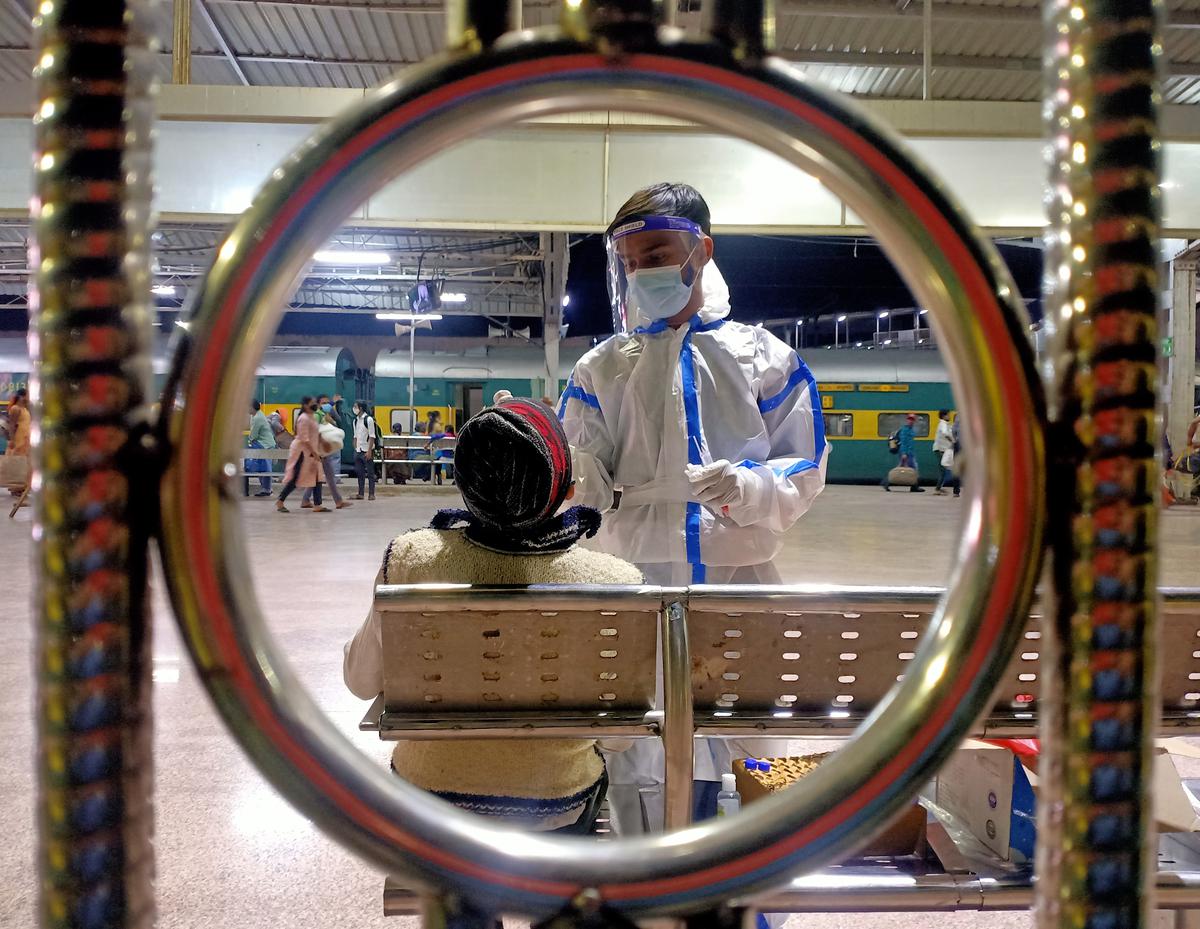
TAC recommends increased testing, especially in Bengaluru, in view of emerging sub-variants in some States
The Hindu
Daily testing number in Bengaluru has dropped to around 2,500 now
In the wake of some States reporting newer sub-variants of Omicron, Karnataka’s COVID-19 Technical Advisory Committee (TAC) has recommended increased testing here as well. Some States have been reporting sub-variants such as BQ.1 and BA.2.3.20, apart from XBB, which is a recombinant of BA.2.75 and BJ.1.
The current daily testing number in Bengaluru, which has always been the epicentre of COVID-19 in the State, has dropped to around 2,500. This has to be increased to at least 10,000, the TAC has recommended.
The TAC that met last week following Union Health Minister Mansukh Mandaviya’s review meeting in Delhi on October 18 to review the COVID situation in the country has advised that the daily number of tests - that have now reduced drastically in the State - should be increased to 15,000. Of these, 10,000 should be conducted in Bengaluru and the remaining in the rest of Karnataka, the TAC has said.
While the State has been reporting around 200 new cases daily (except on holidays and Sundays when the number of tests done are less than 3,000 and new cases are less than 100), at least 12 districts are reporting zero cases since September first week. The daily tests were around 15,000 till then.
Noting that the daily number of tests has reduced drastically since the first week of October, especially in Bengaluru, the TAC report stated: “The number of daily tests in the State capital have reduced from 10,249 (on October 1) to 2,731 (on October 18). However, simultaneously new cases are showing a marginal rise in recent days. From less than 100 new cases in BBMP areas till October 10, new cases have nearly doubled to 199 on October 18.”
TAC Chairman M.K. Sudarshan told The Hindu, “Omicron is a Variant of Concern (VoC) and all its sub-variants too should be seen as VoCs. We will have to watch for an increase in the number of hospitalisations and number of deaths,” he said.
“We have recommended increasing awareness through mass media and social media,” he said. “We cannot disrupt the lives and livelihood of people. Hence, we are keeping a close watch on testing, daily caseload, hospitalisation and deaths,” he added.











